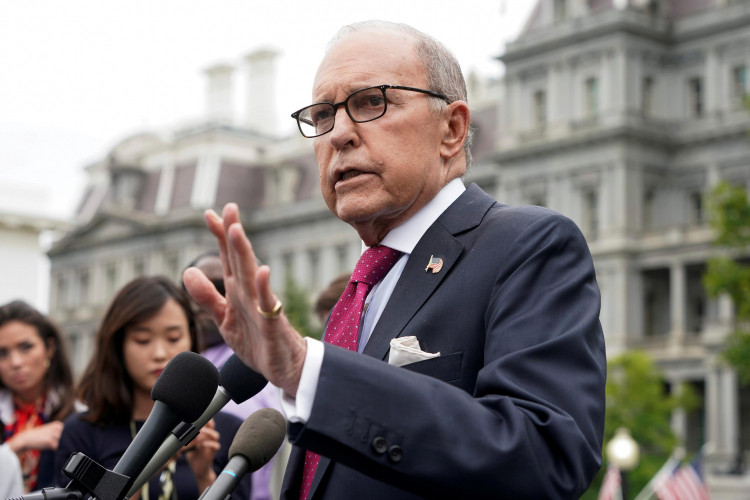The likelihood of an accord in the trade front remains elusive for the United States and China after US President Donald Trump's administration blacklisted Chinese companies which they alleged to be involved in human rights abuses against Muslim ethnic minorities in China's western Xinjiang region.
The move by US economic officials could further escalate trade tensions between Beijing and Washington that began some 15 months ago, and have disrupted major financial hubs and dragged down economies across continents.
Around 30 economic ministers from China, spearheaded by Finance Vice-Minister Liao Min, were welcomed by their US counterparts at the Trade Representatives Office early Monday for two days of talks. A minister-level trade meeting, the first of its kind, is set in the next two months.
Trump and his trade top brass, economic counsel Larry Kudlow, spoke in largely positive terms regarding talks with China this week, which is the first important meeting in over two months, but Trump said a half-baked agreement will not be acceptable.
Trump thinks there is a chance they could "do something very substantial," alluding to top-level discussions set by end of the week. The US president said he would welcome "a big deal" which he and his economic team are "shooting for."
Asked to be more specific with regards to the chances of progress between the two parties, Trump sounded rather doubtful: "Can something happen? Maybe. I think it is perhaps unlikely," he quipped.
The People's Daily, the official newspaper of China's communist party, said the meeting could take place in three directions: a "fair" agreement by both countries; the total collapse of the talks; or keeping the atmosphere of "talking while retaliating".
According to the communist-run daily via its WeChat account, China will do its best to achieve "a good outcome," but at the same time will not force the issue. The online statement took emphasis on recent developments that showed Trump and his team are not yet totally committed to relinquishing their "maximum pressure" strategy.
For its part, the People's Daily pointed out that China has sufficiently responded to plans if the meeting breaks down, without going into more details.
Progress of the meetings will depend on the outcome of "deputy-level talks" during the past weeks. Key subjects to be tackled will include issues non-tariff obstacles, technology transfer, services, cybertheft, intellectual property rights, and agriculture," US Representative Stephanie Grisham disclosed in an official White House statement.






